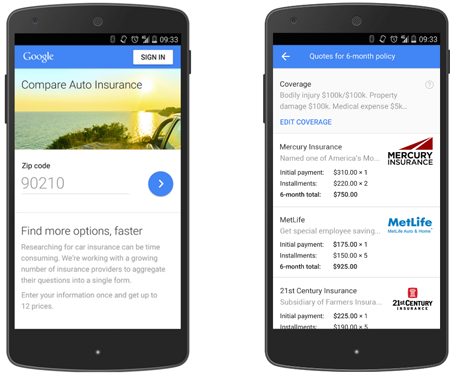3 Reasons Google is Now a Travel Booking Agency

It was recently announced Google would do more than show hotel prices near search users in the U.S., experimenting with direct booking and payment through Google. In 2010, Google added the hotel comparison tool, yet directed the sales to third-party sites (kayak, expedia, tripadvisor, etc.). Now, the comparison and sales are handled by Google.
For any business involved in booking hotels, car rentals and flights, it's a reminder of how fast the industry moves and to never let your guard down. For the rest of us, there's a possibly it's only a hint of things to come.
1# The User Experience is Improved When Google Handles Leads
For the customer, it's far easier to book directly through Google. No more forgetting accounts on Expedia, because last month you tried Trivago. The current problem in online travel booking is too much choice and too little differentiation. Most of the current travel booking sites have the same information. Google solves this issue by already being the destination and now helping with the final sale.
Google wallet can handle the transactions and the experience of finding a cheap flight, hotel, car or all three is much easier when handled by one, trusted party. After all, customers trust Google more than news publications. Can't we trust the world's largest search engine to know the best deal on a hotel?
For a boutique hotel or bed and breakfast, the sheer number of travel and booking sites that customers use regularly is overwhelming and a hassle to manage. Now these owners only need to worry about Google. Many already spend money on Google Adwords, the only change is to spend money on bookings handled by Google.
2# Google Can Disrupt Many More Industries
Google's primary business is information, far reaching into every industry with the potential to disrupt many local and online businesses. Whether Google launches a new tool that will handle the leads, or resell the leads to qualified companies, it's inevitable. These tools do enhance the searcher's experience, a constant objective for Google, and the potential advertising or direct revenue from these comparison and booking tools improves the bottom line. It's a win-win, at the expense of other businesses.
This foray into direct sales for travel booking, comes on the heels of a move into the auto insurance industry. An auto insurance comparison tool called Google Compare, is currently being tested in California and will move to more states later this year.

The repercussions could affect insurance agencies across the United States. If what follows is similar to the travel industry, Google simply shows prices of hotels and prices of auto insurance policies. Then a few years later when it's received enough data, Google sells auto insurance policies to customers.
Despite the CEO of Google Compare stating to Independent Agent, "We are not becoming an auto insurer, nor an insurance agency," - actions will be louder than words.
3# Is this the Future of Google Search?
Here's why these changes are truly scary. It's because Google is changing the layout of the search results page, at least for travel and auto insurance this time. This is comparable to telling a baseball player the diamond just lost third base, now play the game.
Research shows that these comparison tools eat into AdWords revenue and organic click-through rates. Second, Google's entry into these markets, is only adding more weight and visibility behind online-only middlemen.
Amazon Services, launching to little fanfare, resells leads to local businesses along with many other entrants. Thumbtack is highly visible in Google and resells leads for nearly every local service, even funded by Google Ventures. Homeadvisor is successful at being visible for many home improvement queries, selling leads to local contractors. Then there are a host of industry prominent mobile apps and sites all working on connect consumers to the best local businesses. Many have become the UBER for (insert industry here) - Pro.com, theknot.com, repairpal.com, iCracked.com, yourmechanic.com and many more.
As bigger players and longtime competitors from other markets enter the field and continue to gain traction (e.g. Amazon Services), Google may take an even more defensive stance and add comparison and shopping tools for many more industries. The landscape of search result pages in the years to come, could be much more crowded with multiple middlemen, all attempting to eat into the revenue of local businesses.
As a marketer in these times, I can't emphasize to small businesses enough, provide a unique value proposition that isn't based solely on Google rankings. Advertise on other channels and create a brand around your product or service.
Corey Barnett is a Digital Marketing Consultant at Globe Runner. He works with multiple clients in search visibility with expertise spanning search marketing, Local SEO and content marketing. He enjoys writing in his free time and shares insights on his personal blog at cleverlyengaged.com/blog.

Subscribe to Our Newsletter!
Latest in Marketing








